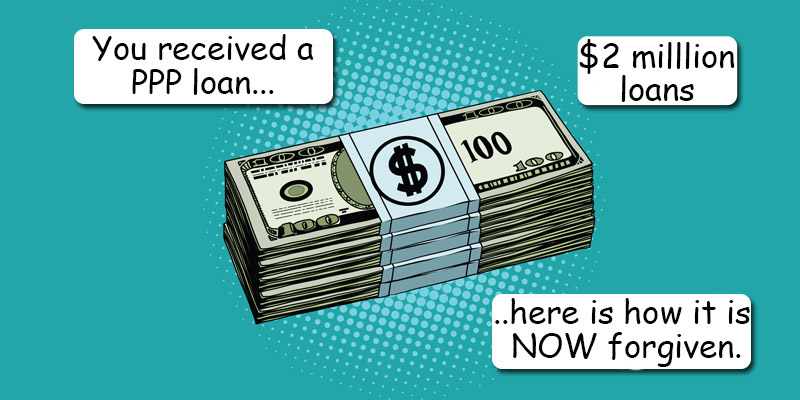On the Paycheck Protection Program (PPP) loan application, many certifications were made by the borrower. An important one to highlight is “current economic uncertainty makes this loan request necessary to support the ongoing operations of the Applicant.” It is a somewhat simple statement that the SBA further indicated that borrowers are acting in good faith, taking into account their current business activity and their ability to access other sources of liquidity sufficient to support their ongoing operations in a manner that is not significantly detrimental to the business. For example, it is unlikely that a public company with substantial market value and access to capital markets will be able to make the required certification in good faith, and such a company should be prepared to demonstrate to US Small Business Administration (SBA), upon request, the basis for its certification.
In late April 2020, the US Treasury determined that loans in excess of $2 million would receive an extra amount of scrutiny at the time of forgiveness, as published in FAQ #39 with the statement that “it will review all loans in excess of $2 million.” This was the result of public outcry after companies such as Shake Shack ($10 million,) Ruth’s Chris Steak House ($20 million,) Los Angeles Lakers (yes, the basketball team) ($4.6 million,) AutoNation ($77 million,) and many other very large and/or publicly traded companies receiving huge amounts of funds that were more so intended for for the small businesses. Not only from public shaming, but the result of emphasis on the ‘other sources of liquidity’ and the fact that borrowers also made the certification that making a false statement to obtain a PPP loan is punishable by imprisonment of not more than thirty years and/or a fine of not more than $1,000,000, many companies wanted to clear themselves from any possible criminal action and returned their borrowed funds.
In an April 22 press briefing, Secretary of Treasury Mnuchin warned of “severe consequences” and “criminal liability” for borrowers who obtained a PPP loan based on a false statement of the necessity certification. The following day on April 23, the SBA advised that any borrower who already secured a loan and returned the funds within two weeks, by May 7, 2020, would be deemed to have made the required certification in good faith, thus avoiding any criminal prosecution. As with many deadlines set, just days before May 7, the SBA extended the safe harbor return date to May 14, 2020. All of the companies mentioned above, as well as dozens, if not hundreds more, returned their funds.
We estimate that 1% of the loans were over $2 million, which translates to about 40,000 loans. Secretary Mnuchin also stated that these loans will be audited for program compliance with a focus on any other liquidity available to the borrower. What that really meant has been secretive…until now.
In late October, two new forms issued by the SBA were identified as “Loan Necessity Questionnaires.” Form 3509 will be used For-Profit borrowers and Form 3510 for Non-Profit. We believe that this is just the start of the “audit” process and based on answers provided, there will likely be additional questioning and review. The questionnaire looks for intimate financial details about the borrower, such as gross revenue pre and post PPP, March 31, 2020 bank account balances and identification of any employees paid during the covered period in excess of $250,000 annualized ($38,462 if using an 8-week covered period.) Ignoring the instruction page and another page of certification that reminds the borrower about the criminal punishment, there are a total of seven pages of questions.
In conclusion, if you have obtained a PPP loan in excess of $2 million, it is recommended that you consult with your legal counsel or other advisors, prior to filing for forgiveness, to ensure that your process goes smoothly.
While I make every attempt to ensure the accuracy and reliability of the information provided in this article, the information is provided “as-is” without warranty of any kind. PayMaster, Inc and Romeo Chicco do not accept any responsibility or liability for the accuracy, content, completeness, legality, or reliability of the information contained. Consult with your CPA, Attorney, and/or HR Professional.

